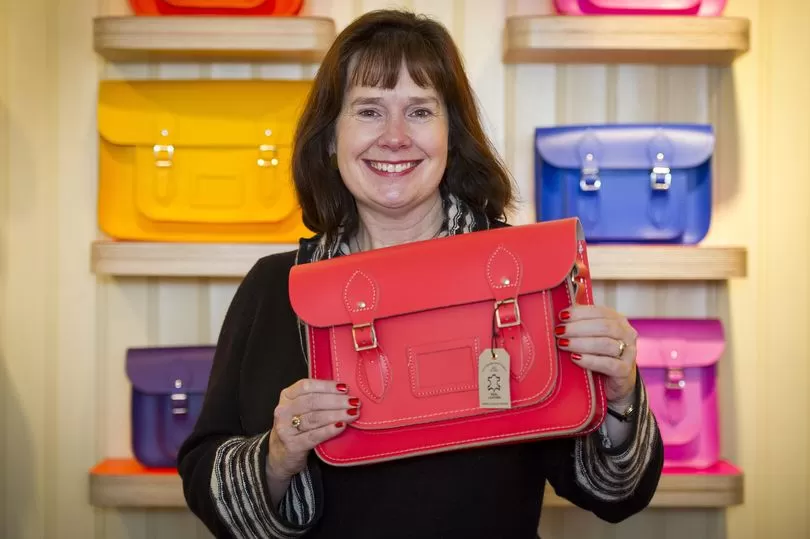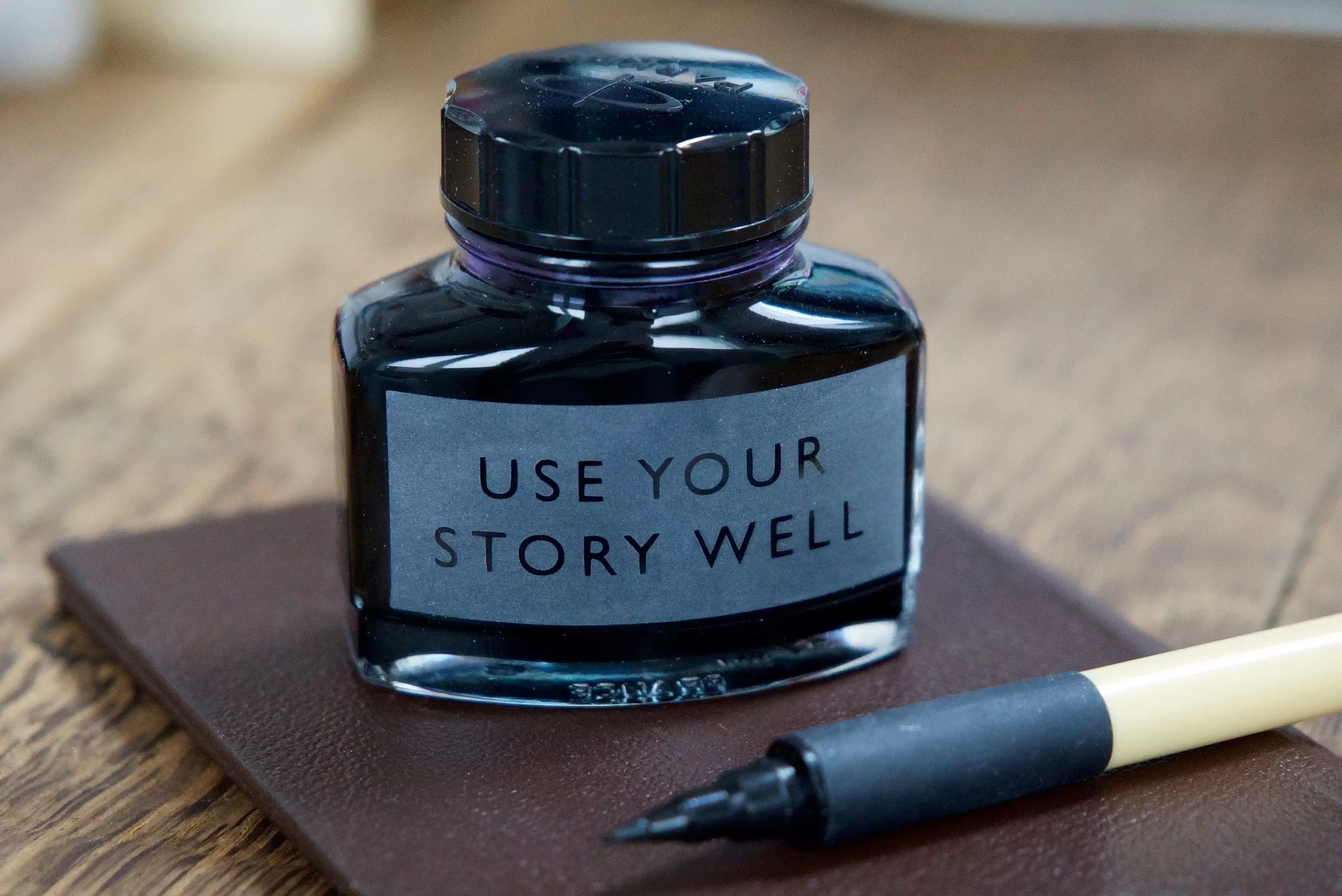

Starting a business with no money
21ST SEPTEMBER 2023
Starting a business with just £600 and a limited skill set is absolutely possible. Discover how Julie Deane CBE was able to provide the life she wanted for her children, and grow a flourishing brand — pursuing her goals with sheer determination...

Lack funding for a business? Learn how to start a business with no money
Julie Deane’s no-nonsense, practical approach to business is awe-inspiring — as is her reason for setting up The Cambridge Satchel Company in the UK. She wanted to be able to send her children to a decent school. “I don’t need to be a founder, CEO, entrepreneur,” she told our founder Holly Tucker MBE, on her very first Conversations of Inspiration podcast. “That isn’t really what does it for me. There was a real reason for it. I wanted them to go to a good school so I had to work out .” It’s a sentiment that many of the Holly & Co community can identify with — working for what matters most to us (or towards our ‘Good Life’ goals as Holly likes to call them). Julie’s advice on this is simple:
- Don't let money be a barrier to getting started: Julie is adamant that the £600 she had to start up The Cambridge Satchel Company was — and still is — not a small amount of money. “It’s enough to find out if your business idea is a good idea,” she adds, “Especially if you don’t want to start out by borrowing money. Having a tight budget can help you focus on what's important… When you don’t have much money, you don’t waste money.”
- Set yourself business goals and avoid procrastination: Julie needed a website so taught herself to code — in just three days. Setting specific goals and deadlines can help you achieve them efficiently and avoid spending longer than might be necessary.
- Don't waste time on trivial matters, set priorities and act with a sense of urgency: Julie stresses the importance of having a sense of urgency to get things done. In fact, she decided on the name of her business in just 10 minutes, and the logo in less than half an hour.
Protect your IP when starting a business and learn how to handle a copycat
Setting up a business in the UK? One of the most devastating things that can happen is to have your product copied. This is why it is essential to protect your intellectual property (IP) from the outset to safeguard your business from copycats.
- When her own manufacturer created a rival brand, The British Satchel Company, using the same leather, colours and dimensions, Julie had to take action. So she turned up at the manufacturer’s premises with a lorry to pick up her leather and tooling equipment with the intention of setting up her own factory.
- Julie acknowledges that it was one of the most stressful times of her life and says, “I hadn’t had a manufacturing agreement with any of my suppliers, it had been done on a handshake, and maybe that was naïve.” Remember, manufacturing agreements and non-disclosure agreements (NDAs) can offer valuable protection for small businesses.
- The Business and IP Centre at the British Library can offer advice on protecting your intellectual property (IP) with non-disclosure agreements (NDAs) and manufacturing agreements. Their website also offers lots of free resources which are invaluable for small businesses.
There was this feeling of, ‘Don’t be a control freak’. But actually, you need to be a control freak, because nobody cares as much as you care about it — nobody cares about the tiny, tiny details that actually do make a difference.
The power of storytelling: use effective marketing for business success
“It’s our responsibility to do the storytelling properly,” says Julie, and it’s a point that resonates with our founder Holly Tucker’s philosophy of emotional marketing. They both believe the following:
When your story is authentically told, it becomes the strongest marketing tool you could hope for. It means people can enjoy the experience and in Julie’s case, say to their friends, “I bought this bag, did you know the history of this bag?” and continue to get joy from it rather than just, “Ok, I need a bag, I’ll buy it, I’ll have it by tomorrow and I’ll wear it and I don’t really know where it’s from or where it’s made.’’
It’s important to share the details of how you started out so record everything as you go — what was the tiny seed of an idea or insight that grew into your business? What drove you? Who makes the items? Stories are how we connect.
No matter how fast your company grows or how big it gets, stay close to the ground and stay connected to the original values from which the brand grew. If decisions or strategies don’t feel right for you, they probably aren’t.
Starting a business: key takeaways…
So there you have it, the things you need to know from the small business owner who wanted to be able to afford her children’s school fees and went on to create a brand with a cult following. When setting up a business, remember the following:
1. Master managing your time and money. Focus on what’s important:
Having a tight budget can help you prioritise and keep a focus on the focus. Setting yourself clear goals and allocating time limits is crucial to getting things done efficiently.
2. Protect your business. Know the importance of intellectual property protection against copycats:
Make sure you have non-disclosure agreements (NDAs) and manufacturing agreements in place from the start to help safeguard your ideas.
3. Remember storytelling in marketing. Embrace emotional marketing:
Storytelling and staying true to your brand values are brilliant marketing tools that can help you connect with your customers as you grow, so take note. And good luck!

Images: 'Use Your Story Well' etched ink pot — by Vinegar & Brown Paper.
Related content
MORE ARTICLES ON STARTING OUT


